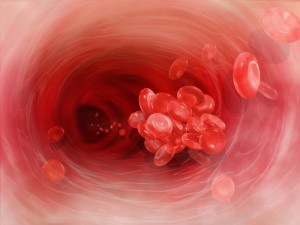 Summer is right around the corner and if you’re like many of my patients, you may be planning to take a road, plane or train trip to travel somewhere. Since many of my patients and my readers are over age 50, I’d like to talk to you about a special concern of traveling that involves sitting for long hours – blood clots. In addition, there are several other risk factors for the development of blood clots which you’ll want to know about even if you’re not traveling anywhere this summer.
Summer is right around the corner and if you’re like many of my patients, you may be planning to take a road, plane or train trip to travel somewhere. Since many of my patients and my readers are over age 50, I’d like to talk to you about a special concern of traveling that involves sitting for long hours – blood clots. In addition, there are several other risk factors for the development of blood clots which you’ll want to know about even if you’re not traveling anywhere this summer.
Who’s At Risk for Blood Clots?
Blood clots account for hundreds of thousands of deaths a year. According to the Surgeon General’s office and the National Center for Health Statistics, mortality from blood clots may rank as high as third behind cancer and heart disease in the United States. However, they can be prevented if you are aware of the things that up your risk. They include:
- Age – most often start to occur in over 50’s age group, with more in over 60’s age group
- Recent surgery
- Hormone therapies
- Obesity
- Broken bones in the hip, pelvis, or leg
- Bumps or bruises from falls or other injuries
- Long sitting times or being confined to a bed or chair
- Varicose veins or heart trouble
- Family history
- Have a port through which you receive medication
- History of blood clot or have had a stroke or heart attack previously
Symptoms of Blood Clot
It may be difficult sometimes to identify certain symptoms associated with blood clots. Some people may experience a few and not others. Generally, here are several of the common early symptoms to be on the lookout for:
- Swelling in your arm or leg
- Redness of skin, and/or warmth
- A sore, “hot” spot on your arm or leg
If a blood clot has shifted and has moved through the blood stream to your lungs or heart, you may experience these symptoms:
- Shortness of breath
- Chest pain
- Rapid heartbeat
- Dizziness and/or fainting
- Cough that may be accompanied by blood
*Note: If you experience any of the above symptoms, don’t second guess it! Get to an emergency room quickly. The precaution could save your life as blood clots can progress very quickly to a life-threatening situation.
Prevention of Blood Clots
When my patients tell me that they plan on traveling by car or across country by plane, I always advise them about preventing blood clots. Some other things they may currently be doing that they didn’t know were a risk for blood clots often surprise them:
- Wear looser jeans, socks, pantyhose. Some people wear jeans so tight around their calves and upper thighs that they can get significant compression of the veins and arteries. This can lead to blood clots.
- Elevate your legs 6-8”. If you have to sit for longer periods while working, put a stool under your desk to keep blood from pooling in your calves.
- Cut down on salt intake. Too much salt can cause blood volume to decrease.
- Avoid badly bumping or bruising your legs, or arms.
- Get up and move. Don’t sit for prolonged periods of time. Walk around; stand for part of your job if you can, to get/keep circulation moving.
- Dehydration causes blood volume to decrease. Clots can form more easily.
- Vitamin E, fish or krill oil, garlic, green tea extract, N-acetyl cysteine, nattokinase, ginger can thin the blood out and/or break up fibrin deposits so clots are less apt to develop. Do not take all of these together, however. Choose 1 or 2 which works best for your total health needs. I recommend that my patients take fish/krill oil daily for their heart health along with 400 mg of Vitamin E. This both protects their heart and prevents blood clots.
How Are Blood Clots Treated?
If you get a blood clot, it will likely need to be treated with a blood thinner prescribed by a doctor. You may have to get an initial injection of heparin followed by Coumadin pills. Follow the recommendations on taking these drugs exactly – too much thinning can cause bleeding, too little can cause the clot to reform.
Blood clots are serious medical business. However, paying close attention to frequent exercise, drinking adequate water and taking the proper supplements, like those listed here, likely means your active life will never be hampered by a blood clot.
Stay Well,
Mark Rosenberg, M.D.
Blood clots, vitamins, herbs, supplements, http://www.raysahelian.com/bloodclot.html
Blood Clot Statistics, http://www.stoptheclot.org/News/article153.htm
photo credit: craftofwonders.blogspot.com
